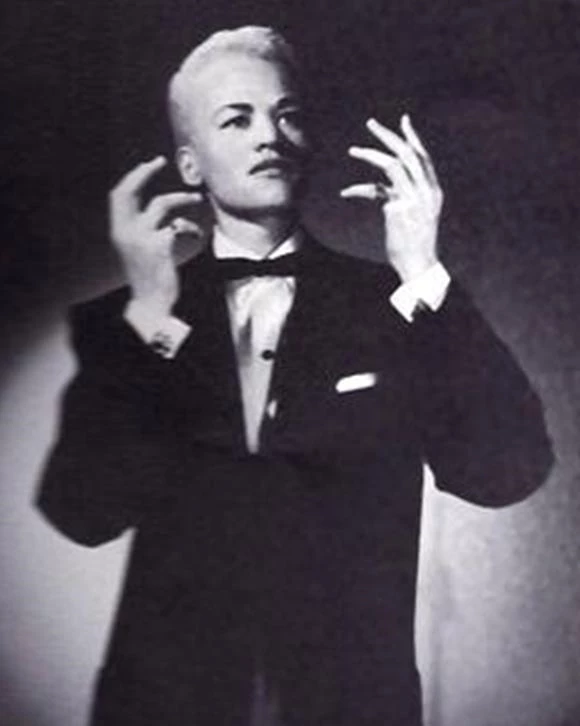Last updated: February 20, 2025
Person
Stormé DeLarverie

https://en.wikipedia.org/wiki/File:Storm%C3%A9_DeLarverie.jpg
Stormé DeLarverie was a butch lesbian with zero tolerance for discrimination, or as she called it, “ugliness.” She was born in New Orleans on Christmas Eve to a Black mother and white father. She had a beautiful baritone voice and discovered a love for jazz at a very early age. She started singing in New Orleans clubs at 15, and soon after began touring around Europe, eventually landing in New York City. She became the master of ceremonies for the Jewel Box Revue, a racially integrated variety show featuring 25 drag queens and DeLarverie as the lone drag king.[1]
This profile is part of an article written by Cal Goodin for the National Parks Conservation Association. It is reproduced with permission.
At the time, New York City law required every person to wear at least three pieces of clothing that matched the gender they were assigned at birth. Initially, DeLarverie tried to obey this law by wearing women’s clothing on the streets and only doing drag on stage. However, she was arrested twice while wearing women’s clothing because cops thought she was a drag queen.
She gave up on abiding by that law, though she was occasionally detained for wearing men’s clothing too. During one arrest, a police officer criticized her bow-tying skills. She responded by asking for a tutorial. He complied, and in a 2001 interview, DeLarverie boasted that she could still tie a bowtie perfectly without a mirror.
DeLarverie called herself the “guardian of the lesbians in The Village.” She patrolled the streets of Greenwich Village with a concealed rifle, making sure all the lesbians and the street kids were safe. If she saw any “ugliness,” she’d shut it down immediately. She continued doing her rounds every night, even as an octogenarian — recounting in a 2002 interview, “You don’t do [ugliness] around me. Just don’t try it. You’re apt to wind up with your ass on the floor.”
Some people believe that DeLarverie started the Stonewall Uprising. The story goes that a “mysterious butch lesbian” was being arrested for violating the three-piece clothing law, and she either yelled for the crowd to do something or punched an officer herself, which encouraged others to start fighting back. Some say that DeLarverie was this butch lesbian, and some say she wasn’t. She even went back and forth herself, and in her old age, preferred not to talk about the specifics. Whether or not she was this individual, her contributions to the LGB community are undeniable. DeLarverie was an icon and an inspiration, both as a musician and as a staunch protector of anyone she considered family. During an era that often showed hostility towards LGB people, and queer women in particular, DeLarverie provided safety and acceptance.
Notes:
[1] The Jewel Box Revue made several appearances at The Apollo theater in Harlem.The Apollo was listed in the National Register of Historic Places on November 17, 1983.
References:
Goodin, Cal. "The Unsung Heroines of Stonewall" National Parks Conservation Association Blog, October 1, 2020.
In The Life Media. "A Stormé Life" (documentary). In The Life Media, June 30, 2001. YouTube.
Klocke, Kirk. "Stonewall Veteran's Wisdom on 'Ugliness'" (interview), 2009. Vimeo.
